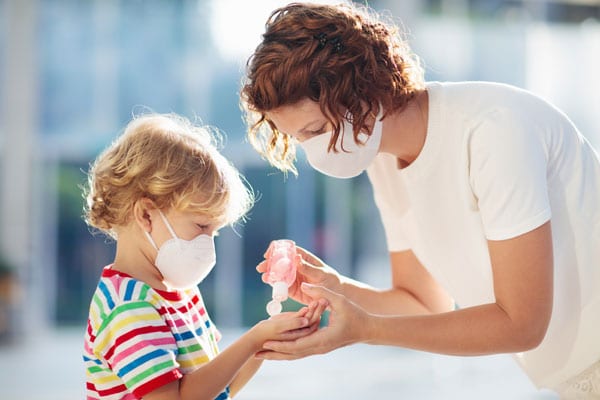We’re learning more every day about the new coronavirus that causes COVID-19. Experts are monitoring the situation closely and updating recommendations when new information is available. What we do know about COVID-19 and how it affects pregnant women comes from case reports and small studies. Researchers are continuing to learn how the illness might affect a pregnant woman and her unborn baby.
Pregnant women don’t seem to be more at risk to get COVID-19. Unlike some other viruses, COVID-19 doesn’t seem to affect pregnant women any more than the general population. Use the recommended steps to avoid coronavirus, protect yourself and other people including:
- wash your hands often with soap and water for at least 20 seconds
- clean your hands with a hand sanitizer that contains at least 60% alcohol if you can’t wash them (rub until your hands feel dry)
- avoid touching your eyes, nose, and mouth
- stay home as much as possible; consider
- stay at least 6 feet away from other people if you need to go out
- avoid people who are sick
Symptoms
Symptoms of COVID-19 in pregnancy are the same as for anyone else. Pregnant women haven’t had more severe symptoms than the general public. The most common symptoms of COVID-19 are fever, cough, and trouble breathing. Some people also have nausea or diarrhea, and loss of the sense of smell or taste.
If you have any of these symptoms contact your healthcare provider for advice on how to monitor your symptoms, whether testing is needed, and if you need to be seen in person for further evaluation.
If you’re pregnant and are diagnosed with COVID-19, your provider will help you determine if you need hospital care or if you can stay at home. To avoid passing COVID-19 to others, separate yourself from other people in your home and wear a face mask if you are around other people and if you need to get medical care.
Call 911 or go to the hospital right away if you have any emergency warning signs:
- Having a hard time breathing or shortness of breath (more than what has been normal for you during pregnancy)
- Ongoing pain or pressure in the chest
- Sudden confusion
- Being unable to respond to others
- Blue lips or face
If you get COVID-19, will it affect your baby?
At this time, it doesn’t appear that COVID-19 is transmitted from a pregnant woman to her unborn baby, but it’s too early to know for sure. Experts at the CDC say that in the reports so far none of the babies born to women with COVID-19 tested positive at birth and COVID-19 was not found in amniotic fluid or breastmilk. In addition, although there have been a small number of reported problems with pregnancy or birth—such as babies born preterm — it is not clear whether these problems were related to the mother’s infection.
Continue to stay healthy during your pregnancy by eating healthy meals, taking vitamins as directed by your obstetric provider, getting some regular exercise, getting plenty of sleep and avoiding alcohol and drugs including smoking or vaping.
Your obstetric provider will also want to continue to monitor your pregnancy through regular prenatal care. Some providers are using phone calls or online video calls to help reduce the number of in-person visits while still providing you with regular pregnancy checks. Also, your providers’ office may call you ahead of time to make sure you do not have symptoms of COVID-19 if you are going to the office for your visit.
We continue to learn more about COVID-19 every day and new studies are gathering more information in particular about COVID-19 during pregnancy, breastfeeding, and in newborns. Your obstetric provider is a great resource for questions you may have about your pregnancy, as well as information and recommendations regarding COVID-19.
Get the latest news and updates for pregnant women
Centers for Disease Control and Prevention (CDC):
American College of Obstetricians and Gynecologists (ACOG):
World Health Organization:






Comments are closed.